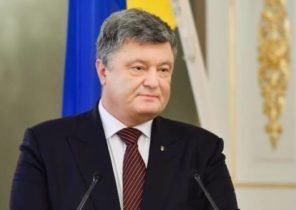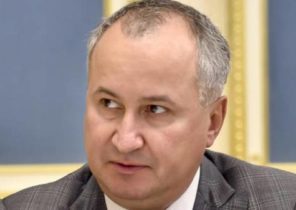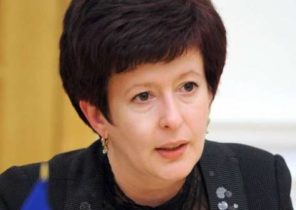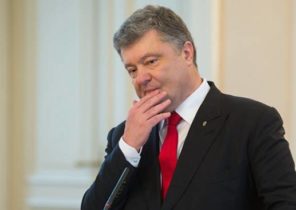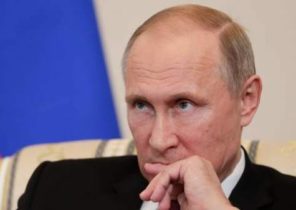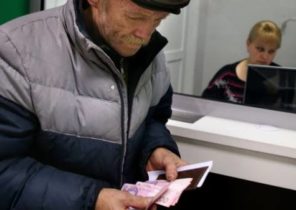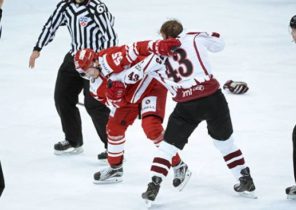75 years ago, the final defeat of Nazi Germany closed the bloodiest theatre of the most violent war in human history. Nowhere is the price of victory was not higher than in the Soviet Union, which killed at least 26 million people. This year the celebration of Victory Day in Moscow was delayed due Covid-19. But while the Russians are waiting for the opportunity to honor the memory of the victims, the legacy of the Second world war are a new battle.
Moving towards more despotism in their own country and overseas adventures, Vladimir Putin is rewriting history for political purposes. Inside the Russian borders focus on the military successes of the Soviet Union is promoting the national idea of Putin justifies autocracy and a distraction from the ailing economy. But the situation on the international arena Putin compares with the year 1941: in his opinion, Russia at the same time threatened by the unilateral actions of the United States and liberal expansion. This gives her an aggressive foreign policy in the near abroad a kind of historical justification.
Putin’s presentation of history is based on two myths: that the Soviet Union from the beginning was on the right side of history and that without the power to achieve victory failed. To give evidence in accordance with these inventions, the Russian history textbooks during the recent education reform rewritten. Now they are almost silent about the Stalinist purges or the role of the Soviet Union early in the war.
In 2014, Putin introduced criminal penalties for criticising the military actions of the Soviet Union. At the informal summit of the Commonwealth of Independent States in December last year, he made lengthy comments about the origins of the war, stating that “the Soviet Union to the last tried to use any chance to create anti-Hitler coalition.” He tried to prevent the beginning of the Second world war, but “almost alone, in isolation,” Putin said. He says that Stalin’s interwar diplomacy was aimed purely to deter Hitler.
But history proves the opposite. After the victory in the First world war, the allies were trying to demilitarize Germany. To avoid allied inspections, the German military entered into a secret partnership in 1922 with the Soviet Union. They created within the Soviet Union, the network of military bases, industrial facilities and research laboratories for rearmament of both countries. On the Soviet side there was little doubt in the militaristic intentions of the German partners. Landfills and the joint bases, the officers fired at the mannequins in the Czech and Polish form. Prototypes of German tanks, tested in the Soviet Union, was designed specially for transportation on the French and Belgian railway platforms. Germany’s ambitions manifested even more clearly in 1933, when the Chancellor was Hitler accelerated rearmament.
Despite tensions, both sides have resumed cooperation after six years in the framework of the Molotov-Ribbentrop Pact. By its terms they divided Eastern Europe. Stalin gave Germany millions of tons of oil, grain and other resources for the war against Britain and France. He even took in the Soviet land of the German military base. Whatever the calculations of Stalin, he helped Germany to rearm, and then two years helped Hitler in the conquest. This is hardly the statement of facts will be useful to Putin at home or abroad.
Stalin’s repressions are unable to strengthen the security of the USSR. Since 1937, Stalin decapitated the Red Army, firing or arresting more than 30,000 army officers on the background of the approaching war. The failed Soviet Union’s invasion of Finland in November 1939, demonstrated the weakness of the red Army and hastened the subsequent invasion of Hitler. Stalin’s purges of the intelligence services, combined with stubborn denial of any evidence of Hitler’s plans to attack the Soviet Union led to disaster, when the German army launched operation “Barbarossa”.
Rewriting history no honors the sacrifice of millions of Soviet soldiers who gave their lives for the victory over Nazi Germany. And, as seen in the example of the Soviet Union, historical truths cannot be a solid basis for political order. Mr. Putin would be wiser if I didn’t do history for your enemy.
She Ian Johnson — associate Professor of military history at the University of Notre Dame and author of the book “Faustovskaya deal: secret Soviet-German cooperation in the interwar period,” which will be released in February 2021.
Reader comments:
Octavio Lima
The amazing thing is that the cooperation between Hitler and Stalin, for anybody not a secret.
Don Brazier
One of the advantages of the country where all opposition media silenced — is it possible to rewrite the textbooks as you like, and no you words across will not tell. In September 1939, the Soviets were definitely in League with the Nazis, and after the invasion of Poland, Hitler was awarded with the Stalin half of Poland.
Conrad Palka
Excellent article. Putin is a liar and a denier. His lies about history, he will not achieve anything.
Robert LaPorta
And the Chinese revisionists argue that China unaided defeated the Japanese. Well, even the Americans at the end dropped a couple of bombs.
Andrew Strutynsky
Millions of Soviet prisoners of war during the first six months of “Barbarossa” gave up without a fight. The greatest mistake of Hitler’s war was to starve the Soviet prisoners of war and hunger, it was necessary to arm them to fight the hated Bolsheviks and Stalin. By the end of the war hundreds of thousands of former Soviet soldiers fought alongside the Wehrmacht against the Soviets, including Russian liberation army led by Andrey Vlasov, a red Army General with a bunch of awards — but it was too late.
In the entire Second world war in the European theater was the second such mass retreat of divisions and whole armies.
Alan Sewell
Here the Germans attacked the British in Tobruk (North Africa) and Russian in Sevastopol around the same time. The British surrendered Tobruk five days, and many “did not participate in hostilities”, writes historian Alexander Werth.
The defense of Sevastopol the Germans broke through only after nine months. Why Russians fought better?
Werth writes about the “heroic resistance to the last.” Not like “surrendered without a fight.”
Peter Gallagher
If it does not remember the shooting of the officer corps of the Polish army in the Katyn forest, after which the Polish army was left without a command when attacked by the Nazis.
Uncle Joe’s hands were covered in blood even before large-scale campaigns.
Bryan Farrell
Few people in Eastern Europe then had clean hands. The poles tried to grab a piece of Czechoslovakia, and the Hungarians — your. Russians divided Poland and the Baltic States. Difficult to see in the Russian sacrifice, until they begin to count.
Rick Benson
In the late eighties I was at a dinner party, and my neighbor on the table was a Polish-emigrant. From the conversation it became clear that the Soviet Communists she hates. I mentioned the massacre in the Katyn forest, and she said that her father was in the number of executed Polish officers, only he was not killed there, it and 800 officers were put on a barge, towed it to the Baltic sea and sank. Cleaner than a bullet in the head, and the grave digging is not necessary.
